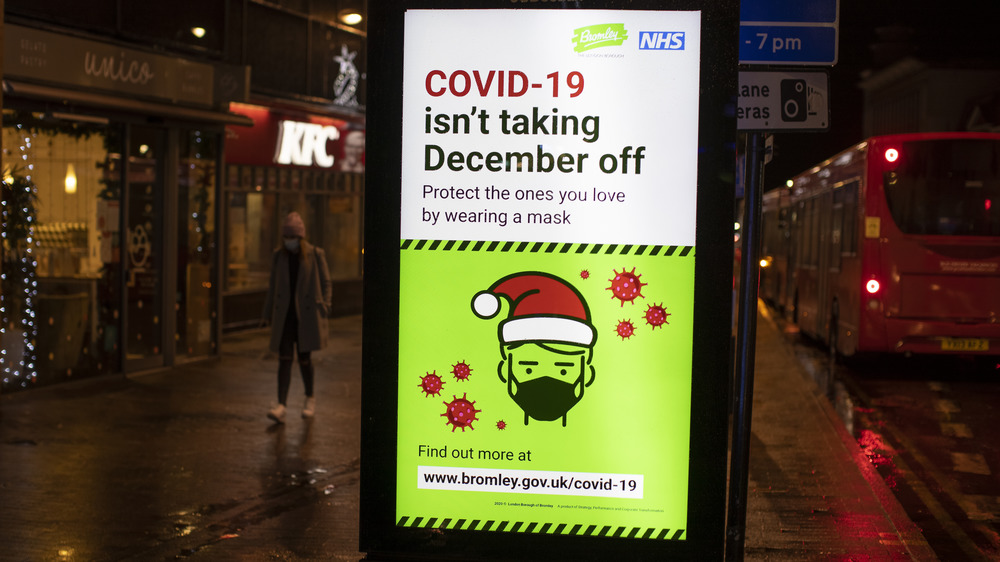The Truth About The UK's New Strain Of COVID-19
Health officials in the United Kingdom are monitoring whether a variation in the coronavirus spreads more quickly after an uptick in COVID-19 cases. "It's a correlation, but we can't say it is causation. But there is striking growth in this variant, which is why we are worried, and it needs urgent follow-up and investigation," Nick Loman, professor of microbial genomics and bioinformation at the University of Birmingham in the UK, said at a briefing (via the journal The BMJ).
Mutations that make viruses more infectious don't necessarily make them more dangerous, The BMJ said. Every virus mutates as part of its life cycle. "Viruses constantly change through mutation and the emergence of a new variant is an expected occurrence and not in itself a cause for concern," the European Centre for Disease Prevention and Control (ECDC) said Sunday.
World Health Organization epidemiologist Maria van Kerkhove told the BBC there is no evidence to suggest this variant of COVID-19 reacts differently to the new vaccines under way. However, "close monitoring of COVID-19-vaccinated individuals needs to be ensured to identify possible vaccination failure and breakthrough infections," the ECDC said.
Over time, the vaccine may need to be altered, similar to how the seasonal flu vaccine is adjusted accordingly each year, The BMJ said. "The SARS-CoV-2 virus doesn't mutate as quickly as the flu virus, and the vaccines that have so far proved effective in trials are types that can easily be tweaked if necessary," The BMJ said.
COVID-19 mutates similar to the seasonal flu; vaccines may need adjusting over time
The UK has "faced a rapid increase" in coronavirus cases over the past few weeks, leading to enhanced study. Preliminary analysis suggests this variant is "significantly more transmittable than previously circulating variants," perhaps as much as 70 percent, according to the ECDC. The same variant has appeared in Australia, Denmark, and the Netherlands.
About 16 million people in London and southeast England over the weekend fell under an emergency lockdown as a precaution, restricting socializing to Christmas Day (via Bloomberg). In addition, Canada, France, and Germany suspended rail travel and halted flights to the area (via Bloomberg).
COVID-19 is an RNA virus, like the flu and measles, which are more prone to mutations, compared with DNA viruses such as smallpox, herpes, and human papillomavirus. "In the world of RNA viruses, change is the norm. We expect RNA viruses to change frequently. That's just their nature," said Dr. Mark Schleiss, a pediatric infectious disease specialist and investigator with the Institute for Molecular Virology at the University of Minnesota in Minneapolis (via Healthline).
As of December 13, scientists in the UK had identified 1,108 individuals with this virus variant, with the earliest case traced to September. The variant now accounts for 20 percent of the viruses sequenced in Norfolk, 10 percent in Essex, and 3 percent in Suffolk. "There are no data to suggest it had been imported from abroad, so it is likely to have evolved in the UK," Loman said.


